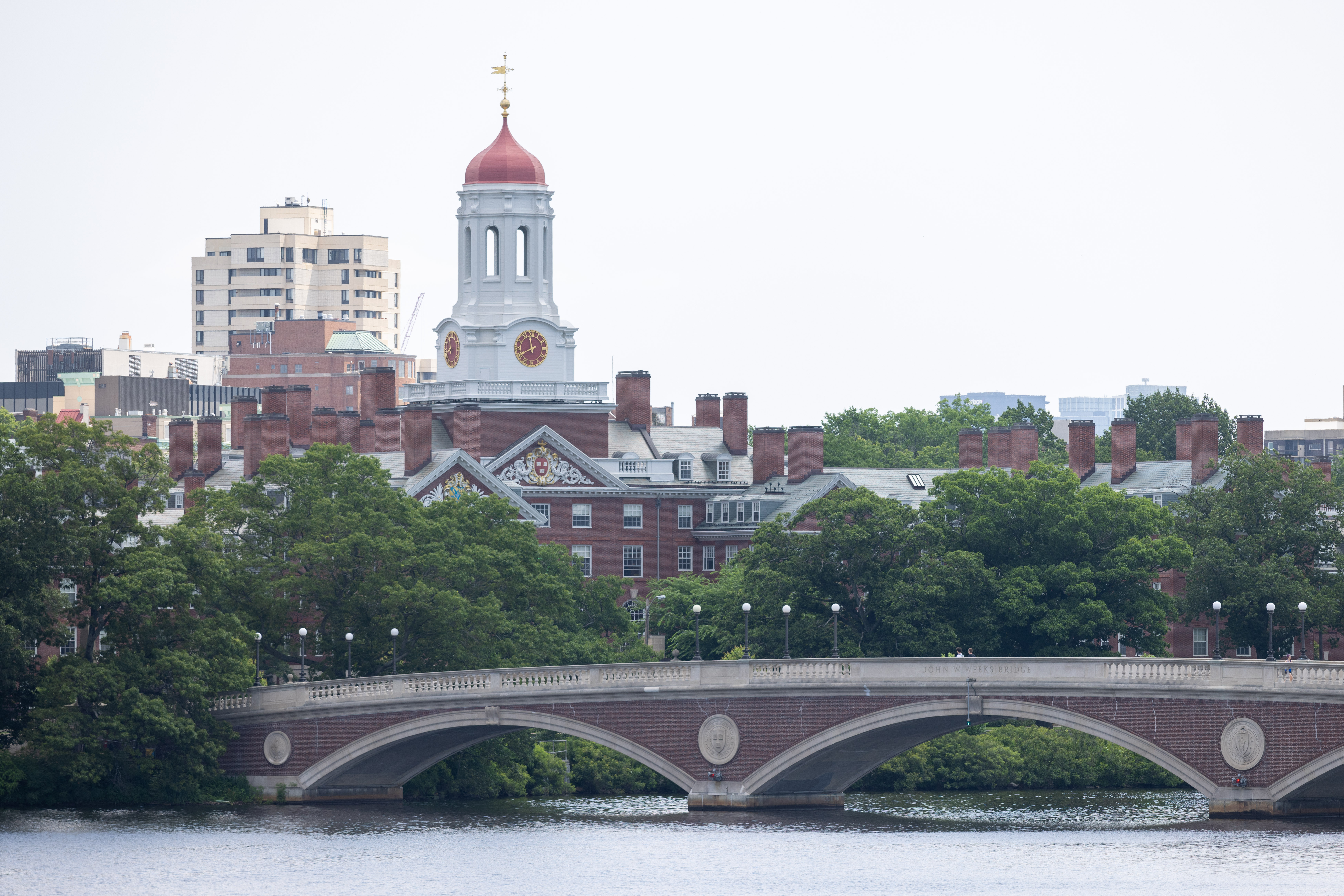
Amid the ongoing controversy over a statement from some Harvard student groups blaming Hamas' deadly attack on Israel on the Israeli government, Harvard's president posted a new statement to clarify where the renowned institution stands on the issues involved.
In a video posted Thursday to the school's website and Friday to Harvard's YouTube page, President Claudine Gay said the university rejects terrorism, hate and harassment based on people's beliefs while embracing free expression, even "views that many of us find objectionable, even outrageous." The statement came amid calls from some Israel supporters for sanctions against the more than two dozen student groups who wrote the letter about the Israel-Hamas War.
WATCH ANYTIME FOR FREE
Stream NBC10 Boston news for free, 24/7, wherever you are. |
"We do not punish or sanction people for expressing" objectionable or outrageous views, Gay said. "But that is a far cry from endorsing them. It's in the exercise of our freedom to speak that we reveal our characters and we reveal the character of our institution."
(Read a transcript of the statement below.)
Get updates on what's happening in Boston to your inbox. Sign up for our News Headlines newsletter.
The initial joint statement from the Harvard Palestine Solidarity Groups said its signatories "hold the Israeli regime entirely responsible for all unfolding violence" because "Israeli violence has structured every aspect of Palestinian existence for 75 years," calling the political situation in the contested land to apartheid.
Some people who belonged to organizations that had signed the letter had announced they didn't know about its contents, and at some point after the letter was published, the list of 35 signing organizations was removed. As of Friday, the letter ended with an addendum that read, "[because it is unclear who many of the original organizations signing the letter properly informed their own membership, and how many of them still approve of it, we have removed the names of the signing organizations]."
As outrage grew soon after the statement, Gay — who began as Harvard's president late last month — was criticized for not immediately offering Harvard's position on the conflict, which as of Friday morning had left more than 1,300 people dead in Israel and over 1,800 in Gaza and the West Bank, according to NBC News.
Among those criticizing Harvard leadership was former president Larry Summers, who wrote on social media on Monday, "Harvard is being defined by the morally unconscionable statement apparently coming from two dozen student groups blaming all the violence on Israel. I am sickened. I cannot fathom the Administration’s failure to disassociate the University and condemn this statement."
Gay released a statement condemning Hamas' attack on civilians and addressing the student groups' comments on Tuesday. But as outrage over the statement simmered, several websites posted the names of students who belonged to the groups, according to The Harvard Crimson student newspaper, which reported that a truck sponsored by one of those groups drove through Cambridge Wednesday and Thursday displaying students' names and labeling them antisemitic.
The video Gay released Friday offered a deeper condemnation of "the barbaric atrocities perpetrated by Hamas" as well as hatred of both Jews and Muslims and urged the Harvard community to come together and determine how to "be helpful to people who are desperately trying to protect themselves and their families" rather than focus on division.
Read a transcript of Gay's full statement here:
This is a moment of intense pain and grief for a great many people in our community and around the world. I feel that pain and grief myself. As members of a university community, we have a choice. We can fan the flames of division and hatred that are roiling the world. Or we can try to be a force for something different and better.
People have asked me where we stand. So let me be clear. Our university rejects terrorism. That includes the barbaric atrocities perpetrated by Hamas. Our university rejects hate. Hate of Jews, hate of Muslims, hate of any group of people based on their faith, their national origin, or any aspect of their identity. Our university rejects the harassment or intimidation of individuals based on their beliefs. And our university embraces a commitment to free expression. That commitment extends even to views that many of us find objectionable, even outrageous. We do not punish or sanction people for expressing such views.
But that is a far cry from endorsing them. It's in the exercise of our freedom to speak that we reveal our characters and we reveal the character of our institution. We can issue public pronouncements declaring the rightness of our own points of view and vilify those who disagree. Or we can choose to talk and to listen with care and humility, to seek deeper understanding and to meet one another with compassion. We can inflame an already volatile situation on our campus. Or we can focus our attention where it belongs on the unfolding tragedy thousands of miles away.
We can ask ourselves how, as human beings, we can be helpful to people who are desperately trying to protect themselves and their families. People who are fighting to survive.
How we go forward as a community is up to each of us. I've spent most of my career at this institution. I have seen the people of Harvard come together despite their differences. I know that we are capable of meeting this moment and meeting one another with grace.



